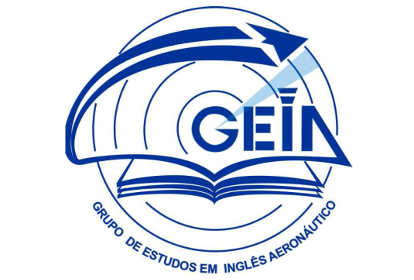GEIA - Grupo de Estudos em Inglês Aeronáutico (Aeronautical English Research Group)
Introduction
English language proficiency is an essential tool for the safety of aeronautical communications which involve international air traffic. The Institute of Airspace Control (ICEA) is responsible for planning, developing and delivering training and testing solutions to Brazilian air traffic controllers, in order to comply with the language proficiency requirements set by the International Civil Aviation Organization (ICAO). Besides, as a Science & Technology Institution, ICEA must “provide for research, development, training, and teaching pertinent to Brazilian airspace control activities,” according to its internal regulation.
In agreement with its mission statement, ICEA is home to a research group named GEIA - Grupo de Estudos em Inglês Aeronáutico (Aeronautical English Research Group). The group has been listed under Brazil’s National Council for Scientific and Technological Development (CNPq) since 2013. Led by Dr Patrícia Tosqui Lucks, a civil servant at ICEA, GEIA comprises researchers at various Airforce Command organizations and also universities, thus possessing an interinstitutional character.

GEIA is dedicated to studying aspects concerning Aeronautical English language description, teaching, learning, and assessment. Aeronautical English refers to the language used in communications during a flight in an international environment and, for the purposes of this group, more specifically between pilots and air traffic controllers (ATCo). “Aviation English” in an umbrella term that refers to English language used in the communication of many aviation professionals (such as pilots, mechanics, meteorologists, etc.), in different contexts and situations.
This group aggregates research studies whose objective is to investigate different aspects of Aeronautical English in the Brazilian context, as well as their relationships with teaching, learning, and assessment. The group aims to study topics such as:
- the description of the language used in pilot-ATCo radiotelephony communications that go beyond standard phraseology in non-routine and emergency situations, as well as the description of the English language used in the performance of duties at the different Brazilian air traffic control units;
- analysis of the content, instructional material, and other elements of English courses/training offered to Brazilian pilots and ATCOs;
- description and analysis of assessment tools used to evaluate pilots’ and air traffic controllers’ language proficiency for their jobs;
- and other related topics in the interface of Aviation English, such as translation, compilation of glossaries and other terminology tools, contrastive analysis with other languages, etc.
The results from those studies will aid the development and improvement of English language teaching, learning, and assessment resources targeted at Brazilian air traffic control professionals, so as to ensure they are able to use the English language as a tool for a safe work performance.
GEIA Objectives
- Gathering researchers from different institutions and military organizations with similar Aviation and Aeronautical English interests;
- Sponsoring debates and reflections about the themes of the lines of research, so as to promote the interchange, development, and growth of both the professionals and the institutions involved;
- Offering concrete contributions to ICEA’s Foreign Language Division (assessment and training) and, consequently, to the Airspace Control Department (DECEA) and to the Brazilian Airspace Control System (SISCEAB);
- Promoting ICEA as a nationally renowned research institute (ICT) and as an authority to evaluate Aviation and Aeronautical English research projects;
- Disseminate research-generated knowledge in the institutional, national, and international spheres (Brazilian Air Force, ICAEA, Linguistics and Applied Linguistics events, publications, etc.).
Lines of Research
- Description and analysis of language within the Aeronautical English environment;
- English language teaching and learning in the Aeronautical English context(s);
- Aeronautical English proficiency assessment.
Prerequisites
- To be carrying out or to have concluded research related to one of the group’s lines of research, be it as a researcher, as an undergraduate, Masters or PhD student, or as an advisor or co-advisor.